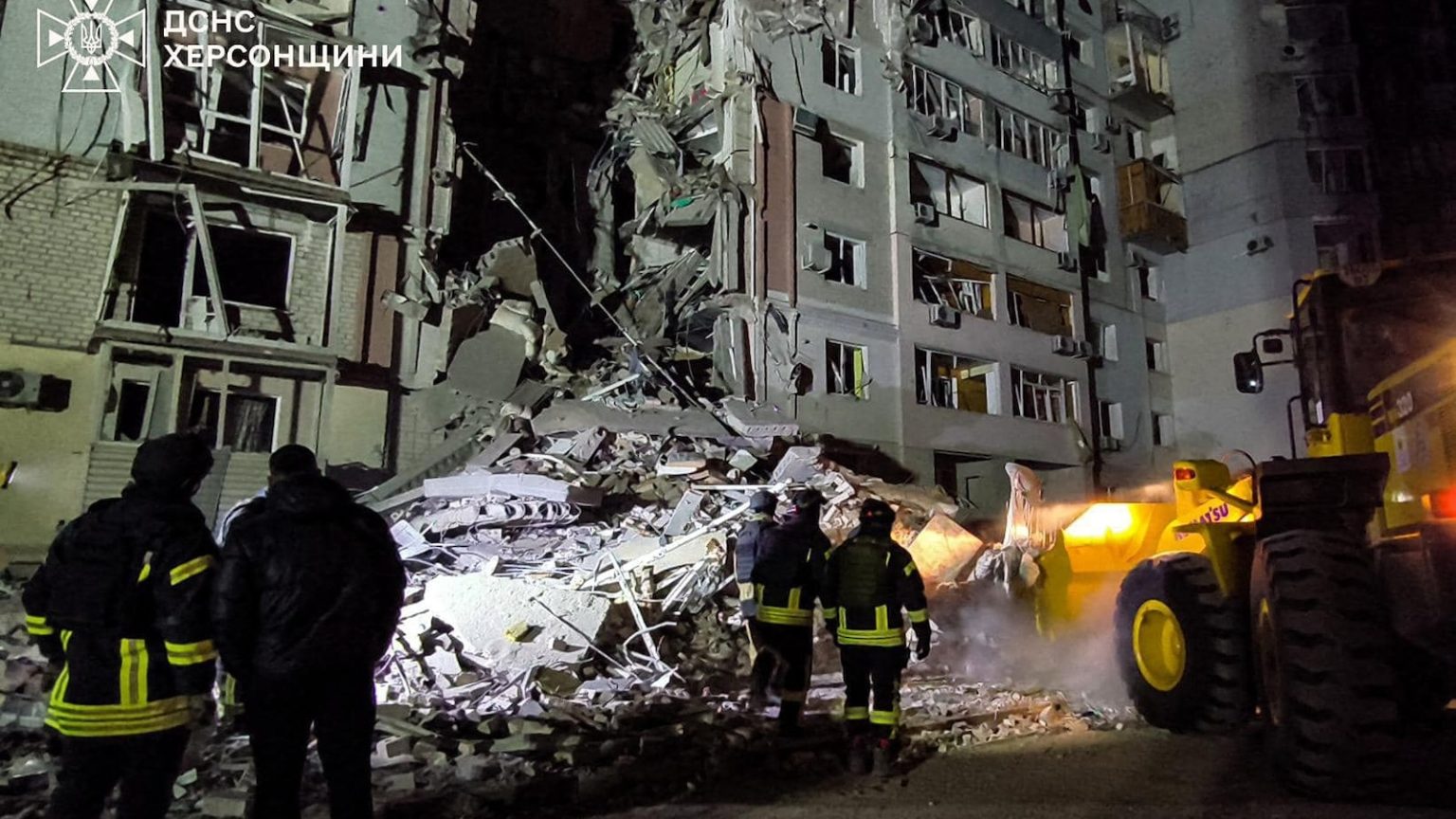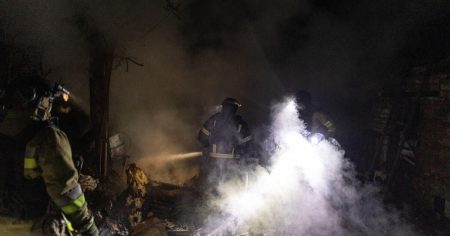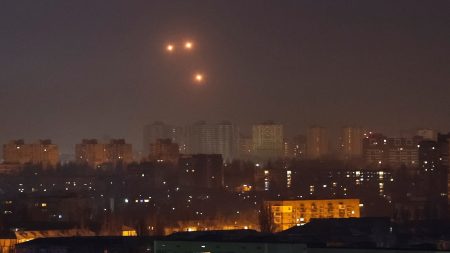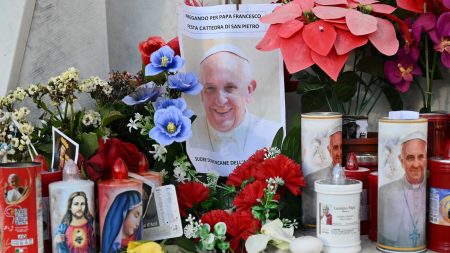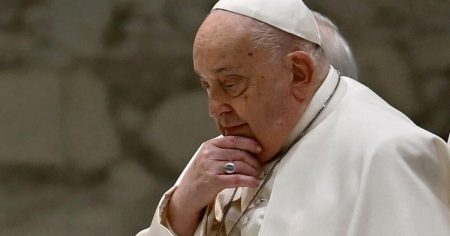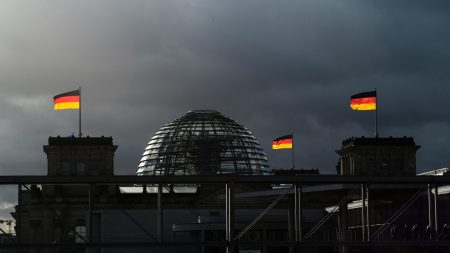Russia Unleashes Another Devastating Attack on Ukraine
In the early hours of Friday, Russia launched a relentless barrage of 14 missiles and 161 drones into Ukraine, marking one of the most intense attacks since the war began. The assault, which targeted critical energy infrastructure, was part of a broader strategy to cripple Ukraine’s ability to sustain its population during the harsh winter months. According to Ukraine’s air force, 80 of the drones were successfully shot down, while 78 others malfunctioned or crashed without causing damage. The remaining drones and missiles, however, inflicted significant harm on energy facilities, raising concerns about the country’s ability to provide heat and electricity to its civilians.
Ukrainian Energy Minister German Galushchenko condemned the attacks as "criminal" and "terrorist acts," accusing Russia of deliberately targeting gas infrastructure to disrupt both household needs and centralized heating systems. Galushchenko emphasized that such attacks were not only a violation of international law but also a grim reminder of Russia’s willingness to harm ordinary Ukrainians. "This is outright terrorism," he wrote on social media, criticising Russia’s repeated denials of targeting civilian infrastructure.
Russia, however, defended its actions, claiming the strikes were aimed at Ukraine’s "gas and energy infrastructure facilities that ensure the operation of the military-industrial complex." The Russian Defense Ministry boasted that "all facilities have been hit," though Ukraine has not confirmed the full extent of the damage. The attack underscores Russia’s ongoing efforts to destabilize Ukraine’s economy and military capabilities, even as peace talks resumed in Saudi Arabia earlier this week.
Peace Talks in Saudi Arabia: A Controversial Attempt at Diplomacy
The latest round of peace talks, hosted in Saudi Arabia, has sparked controversy due to Ukraine’s exclusion from the negotiations. The talks, involving representatives from Russia and the United States, were initiated by the Trump administration, which has faced criticism for its approach to the conflict. Ukrainian officials and European allies have expressed outrage over Kyiv’s exclusion, arguing that any legitimate peace process must involve the direct participation of Ukraine.
President Volodymyr Zelenskyy lambasted the talks as a potential trap, warning that Russia’s involvement in any negotiation is inherently deceptive. "Since 2014, the world has been living in a new reality, when Russia is trying to deceive everyone," Zelenskyy wrote on Telegram, referencing the anniversary of the Maidan Revolution, which led to the ousting of pro-Russian President Viktor Yanukovych. Zelenskyy stressed the importance of international unity in the face of Russian aggression, urging allies to remain vigilant and continue supporting Ukraine’s fight for freedom.
Meanwhile, former U.S. President Donald Trump, who has been critical of Ukraine, sparked further controversy by labelling Zelenskyy a "dictator without elections" and claiming his approval ratings were as low as 4%. Trump’s comments were met with widespread criticism, with many accusing him of parroting Russian disinformation. Zelenskyy responded by suggesting that Trump was operating in a "disinformation space," potentially influenced by Russian propaganda.
The Humanitarian Toll: Civilians Caught in the Crossfire
The latest Russian strikes have exacerbated the already dire humanitarian situation in Ukraine. As winter deepens, millions of Ukrainians are struggling to access basic necessities like heat, electricity, and clean water. The deliberate targeting of energy infrastructure has left many without power, forcing families to endure freezing temperatures in poorly insulated homes. Rescuers and emergency services are working around the clock to respond to the aftermath of the attacks, but the scale of the devastation is overwhelming.
Ukrainian officials have repeatedly warned that such attacks amount to terrorism, designed to break the spirit of the Ukrainian people. Galushchenko called the strikes "criminal attacks" aimed at "plunging ordinary Ukrainians into the cold in the middle of winter." The international community has condemned the attacks, but Russia remains unrepentant, continuing to deny any wrongdoing.
Ukraine’s Fight Back: "Drone Sanctions" and Long-Range Strikes
Despite the relentless barrage from Russia, Ukraine is fighting back with its own campaign of long-range strikes against Russian military and industrial infrastructure. Dubbed "drone sanctions," the campaign targets key facilities linked to Russia’s lucrative fossil fuel industry, which funds much of its war effort. Ukrainian security services have claimed responsibility for these attacks, which aim to disrupt Russia’s ability to sustain its military operations.
The latest reports indicate that Ukrainian forces have successfully targeted several high-value facilities, though the full impact of these strikes remains unclear. Russia, however, has claimed to have intercepted 13 Ukrainian drones in the past 24 hours, suggesting that the conflict is far from over.
The Road Ahead: A Delicate Balance of Diplomacy and Defiance
As the war enters its fourth year, the situation remains increasingly complex. While peace talks are underway, the exclusion of Ukraine has raised questions about their legitimacy and effectiveness. The international community is urging all sides to engage in good-faith negotiations, but trust in Russia’s intentions remains low.
Ukraine, meanwhile, continues to advocate for stronger military and economic support from its allies. Zelenskyy’s government has made it clear that it will not compromise on its sovereignty or territorial integrity, even as the humanitarian toll mounts. The resilience of the Ukrainian people, despite unimaginable hardship, remains a testament to their determination to defend their country.
As the conflict rages on





